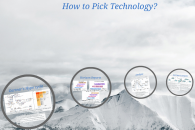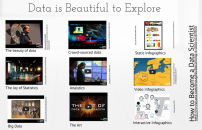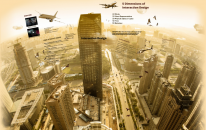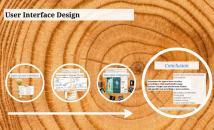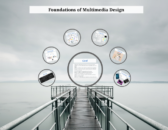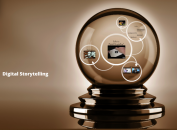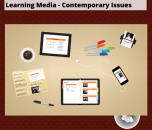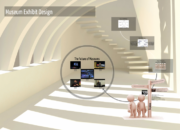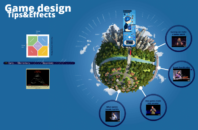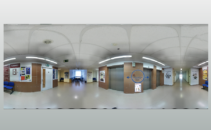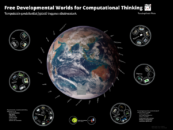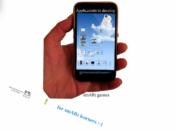Chapters
Scope
Definitions
Human learning may occur as part of education, personal development, schooling, or training. It is goal-oriented and aided by motivation. The study of how learning occurs is part of neuropsychology, educational psychology, learning theory, and pedagogy. Learning may occur as a result of habituation or classical conditioning, seen in many animal species, or as a result of more complex activities such as play, seen only in relatively intelligent animals.
Education in its general sense is a form of learning in which the knowledge, skills, and habits of a group of people are transferred from one generation to the next through teaching, training, or research. Education frequently takes place under the guidance of others, but may also be autodidactic. Any experience that has a formative effect on the way one thinks, feels, or acts may be considered educational. Formal learning takes place within formal institutional environment as is formally recognised; non-formal learning takes place within formal environment, but is not formally recognised; while informal learning for young people is an ongoing process that also occurs in a variety of places, such as out of school time, in youth programs at community centers and media labs.
Neuropsychology studies the structure and function of the brain as they relate to specific psychological processes and behaviors. It is seen as a clinical and experimental field of psychology that aims to study, assess, understand and treat behaviors directly related to brain functioning. It is scientific in its approach, making use of neuroscience, and shares an information processing view of the mind with cognitive psychology and cognitive science.
Educational psychology is the study of how humans learn in educational settings, the effectiveness of educational interventions, the psychology of teaching, and the social psychology of schools as organizations. Educational psychology is concerned with how students learn and develop, often focusing on subgroups such as gifted children and those subject to specific disabilities.
Educational psychology is informed primarily by psychology & neuroscience and in turn it informs a wide range of specialities within educational studies, including instructional design, educational technology, curriculum development, organizational learning, special education and classroom management. Educational psychology both draws from and contributes to cognitive science and the learning sciences.
Learning sciences (LS) refers to an interdisciplinary field that works to further scientific understanding of learning as well as to engage in the design and implementation of learning innovations, and improvement of instructional methodologies.
Cognitive science is the interdisciplinary scientific study of the mind and its processes. It examines what cognition is, what it does and how it works. It includes research on intelligence and behavior, especially focusing on how information is represented, processed, and transformed (in faculties such as perception,language, memory, reasoning, and emotion) within nervous systems (human or other animal) and machines (e.g. computers). It spans many levels of analysis, from low-level learning and decision mechanisms to high-level logic and planning; from neural circuitry to modular brain organization. The fundamental concept of cognitive science is “that thinking can best be understood in terms of representational structures in the mind and computational procedures that operate on those structures.”
Learning theories are conceptual frameworks that describe how information is absorbed, processed, and retained during learning. Cognitive, emotional, and environmental influences, as well as prior experience, all play a part in how understanding, or a world view, is acquired or changed, and knowledge and skills retained.
Pedagogy is the science and art of education, specifically instructional theory. An instructor develops conceptual knowledge and manages the content of learning activities in pedagogical settings. Modern pedagogy has been strongly influenced by the cognitivism of Piaget; the social-interactionist theories of Bruner; and the social and cultural theories of Vygotsky. These theorists have laid a foundation for pedagogy where sequential development of individual mental processes, such as recognize, recall, analyze, reflect, apply, create, understand, and evaluate, are scaffolded.
Constructionist learning is inspired by the constructivist theory that individual learners construct mental models to understand the world around them. However, constructionism holds that learning can happen most effectively when people are also active in making tangible objects in the real world. In this sense, constructionism is connected with experiential learning, and builds on Jean Piaget‘s epistemological theory of constructivism.
Constructivism, as a perspective in education, explains how knowledge is constructed in the human being when information comes into contact with existing knowledge that had been developed by experiences.
Cooperative learning is an approach to organizing classroom activities into academic and social learning experiences. It differs from group work, and it has been described as “structuring positive interdependence.” Students must work in groups to complete tasks collectively toward academic goals. Unlike individual learning, which can be competitive in nature, students learning cooperatively capitalize on one another’s resources and skills (asking one another for information, evaluating one another’s ideas, monitoring one another’s work, etc.). Furthermore, the teacher’s role changes from giving information to facilitating students’ learning. Everyone succeeds when the group succeeds.
Collaborative learning is a situation in which two or more people learn or attempt to learn something together. More specifically, collaborative learning is based on the model that knowledge can be created within a population where members actively interact by sharing experiences and take on asymmetry roles. Put differently, collaborative learning refers to methodologies and environments in which learners engage in a common task where each individual depends on and is accountable to each other. Collaborative learning is heavily rooted in Vygotsky’s views that there exists an inherent social nature of learning which is shown through his theory of zone of proximal development.
Learning style is an individual’s natural or habitual pattern of acquiring and processing information in learning situations. A core concept is that individuals differ in how they learn. Proponents of the use of learning styles in education recommend that teachers assess the learning styles of their students and adapt their classroom methods to best fit each student’s learning style. Although there is ample evidence for differences in individual thinking and ways of processing various types of information, few studies have reliably tested the validity of using learning styles in education. Critics say there is no evidence that identifying an individual student’s learning style produces better outcomes. There is evidence of empirical and pedagogical problems related to the use of learning tasks to “correspond to differences in a one-to-one fashion”. Well-designed studies contradict the widespread “meshing hypothesis”, that a student will learn best if taught in a method deemed appropriate for the student’s learning style.
Learning media encompasses all the resources (educational content, hardware, software) that might be used to facilitate students’ achievement of instructional objectives.
Digital literacy is the ability to effectively and critically navigate, evaluate and create information using a range of digital technologies.
Transliteracy is the ability to read, write and interact across a range of platforms, tools and media from signing and orality through handwriting, print, TV, radio and film, to digital social networks.
References: Definitions and links (unless otherwise indicated as “site” or “pdf”) are copied and edited from English Language Wikipedia as of 1st September 2013. Titles could be further explored through indicated links.
Research
Design issues
Case-studies
T@T lab case-studies:
Turcsanyi-Szabo, M. (2003). Capacity building in tele-houses: A model for tele-mentoring, ed. Marshall G., Katz, Y. Learning in School, Home and Community, Klewer Academic Publishers, Series: IFIP International Federation for Information Processing, Vol. 113, pp 101-111, ISBN: 978-1-4020-7367-0 http://www.springer.com/education/book/978-1-4020-7367-0
(see CapBinTelehouses.ppdf)
Kaszas, P., Turcsanyi-Szabo, M., (2003). Adaptive knowledge maps, Proceedings of Eurologo 2003, pp. 274 – 280, Porto, Portugal – also published at http://matchsz.inf.elte.hu/Colabs/Porto/pubs/KP_TSzM.pdf
(see KP_TSzM.pdf)
Turcsanyi-Szabo, M. (2003). Practical Teacher Training Through Implementation of Capacity Building Internet Projects, Proceedings of SITE 2003, abstract pp. 189, full paper on CD, Albuquerque, New Mexico USA. – also published at http://dl.aace.org/12001
(see teampractice_SITE.pdf)
Turcsanyi-Szabo, M. (2003). Collaboratories – How can Children Learn over the Internet, Proceedings of Eurologo 2003, pp. 18 – 28, Porto, Portugal. – also published at http://matchsz.inf.elte.hu/Colabs/Porto/pubs/TSzM.pdf
(see TSzM.pdf)
Turcsanyi-Szabo, M. (2004). Informatics teacher training in Hungary: building community and capacity with tele-houses, ed. A., Brown & N., Davis, World Yearbook of Education 2004: Digital Technology, Communities & Education, pp. 277-288, RoutledgeFalmer. ISBN: 978-0-415-33493-8, http://www.routledgeeducation.com/books/World-Yearbook-of-Education-2004-isbn9780415334938
(see 19chap18Szabo.pdf)
Turcsanyi-Szabo, M., Kalas, I. (2005). Collaboration – a tool for learning, Proceedings of Eurologo 2005, pp. 54-65, Warsaw, Poland also published at http://eurologo2005.oeiizk.waw.pl/PDF/E2005TurcsanyiKalas.pdf http://eurologo2005.oeiizk.waw.pl
(see E2005TurcsanyiKalas.pdf)
Turcsanyi-Szabo, M. (2006). Creative Classroom CD Logotron Ltd, Cambridge, http://www.r-e-m.co.uk/logo/?comp=imagine&html=creative.html
(cannot be downloaded)
Schoonenboom, J., Levene, M., Heller, J., Keeno, K., and Turcsányi-Szabó, M. (eds.). (2007) Trails in Education: Technologies that Support Navigational Learning, pp. 59-84, Sense Publishers, ISBN 978-90-8790-076-2 The Netherlands https://www.sensepublishers.com/product_info.php?cPath=75&products_id=304&osCsid=51d76ce1f0aacc66a858634ead2451f
Turcsanyi-Szabo, M., (2008). Online Professional Development for Teachers, in International handbook of Information Technology in primary and secondary education, pp. 729-742, Series: Springer International Handbooks of Education , Vol. 20, ISBN: 978-0-387-73314-2, Voogt, Joke; Knezek, Gerald (Eds.)
http://www.springer.com/education/learning+&+instruction/book/978-0-387-73314-2
(see Voogt_Section 7.6.pdf)
I, Kalas, H.E. Bannayan, E. Laval, D. Laurillard, C.P.Lim, S. Musgrave, A. Semenov, M. Turcsanyi-Szabo, ICT in Primary – UNESCO publication: http://iite.unesco.org/pics/publications/en/files/3214707.pdf
(see 3214707.pdf)
Turcsányi-Szabó, M. (2010), Competencies, Innovation, Networking – Sustainability, Web 2.0 Conference proceedings, Institute of Mathematics & Informatics, pp. 18-22, ISBN 978-9986-680-49-9
(video: http://www.upc.smm.lt/naujienos/web2/konferencija.php#pv18 )
Turcsányi-Szabó,M., Aiming at Sustainable Innovation in Teacher Education – from Theory to Practice, Informatics in Education, 2012, Vol. 11, No. 1, 115–130, Vilnius University, 2012. also at
http://www.mii.lt/informatics_in_education/pdf/INFE197.pdf
(see INFE197.pdf)
Sustainable Innovation in Teacher Education: https://prezi.com/jli7ccsvvlo6/sustainable-innovation-in-teacher-education/ (see sustainable-innovation-in-teacher-education-jli7ccsvvlo6.zip )
T@T network: https://prezi.com/dict1whnts4e/tt-network/
IFIP network: https://prezi.com/l8v09u_ckg77/ifip-tc3-network/
Educational Technology Course: http://www.slideshare.net/Turcsi/tt-course-4533134 (see TTcourse.ppt)
ELTE TÁMOP ICT project http://www.slideshare.net/Turcsi/elte-ict-project (see ELTE_ICT.ppt)
KidLogo project: http://www.slideshare.net/Turcsi/kidlogo-project (see Kidlogo.ppt)
Social Constructionism in Practice: (see SocialConstructionism.ppt)

